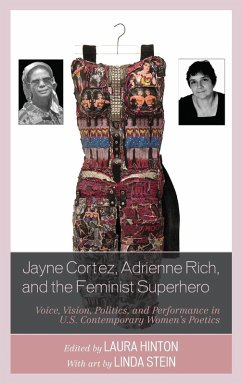
Feminist Interpretations of Emmanuel Levinas
Versandkostenfrei!
Versandfertig in über 4 Wochen
167,99 €
inkl. MwSt.

PAYBACK Punkte
84 °P sammeln!
This volume of essays, all but one previously unpublished, investigates the question of Levinas's relationship to feminist thought. Levinas has become known as the philosopher of the Other -- famously portrayed by Simone de Beauvoir as a patriarchal thinker who denigrated women by viewing them as the paradigm Other. Reconsideration of the validity of this interpretation of Levinas and exploration of what can be derived from his thought more positively for feminism are two of this volume's primary aims. Levinas breaks with Heidegger's phenomenology by understanding the ethical relation to the O...
This volume of essays, all but one previously unpublished, investigates the question of Levinas's relationship to feminist thought. Levinas has become known as the philosopher of the Other -- famously portrayed by Simone de Beauvoir as a patriarchal thinker who denigrated women by viewing them as the paradigm Other. Reconsideration of the validity of this interpretation of Levinas and exploration of what can be derived from his thought more positively for feminism are two of this volume's primary aims. Levinas breaks with Heidegger's phenomenology by understanding the ethical relation to the Other, the face-to-face, as exceeding the language of ontology. The ethical orientation of Levinas's philosophy assumes a subject who lives in a world of enjoyment, a world that is made accessible through the dwelling. The feminine presence presides over this dwelling, and the feminine face represents the first welcome. How is this feminine face to be understood? Does it provide a model for the infinite obligation to the Other, or is it a proto-ethical relation? The essays in this volume investigate this dilemma. Emmanuel Levinas (1906-1995) was born in Kaunas, Lithuania, and became a naturalized French citizen in 1930. He was influenced by Edmund Husserl, with whom he studied phenomenology, and Martin Heidegger, among others. It was mainly during the 1950s that Levinas began to work out a highly original philosophy of ethics with the aim of going beyond the ethically neutral tradition of ontology. Levinas's first magnum opus, Totality and Infinity (1961), sought to accomplish this departure through an analysis of the "face-to-face" relation with the Other.












